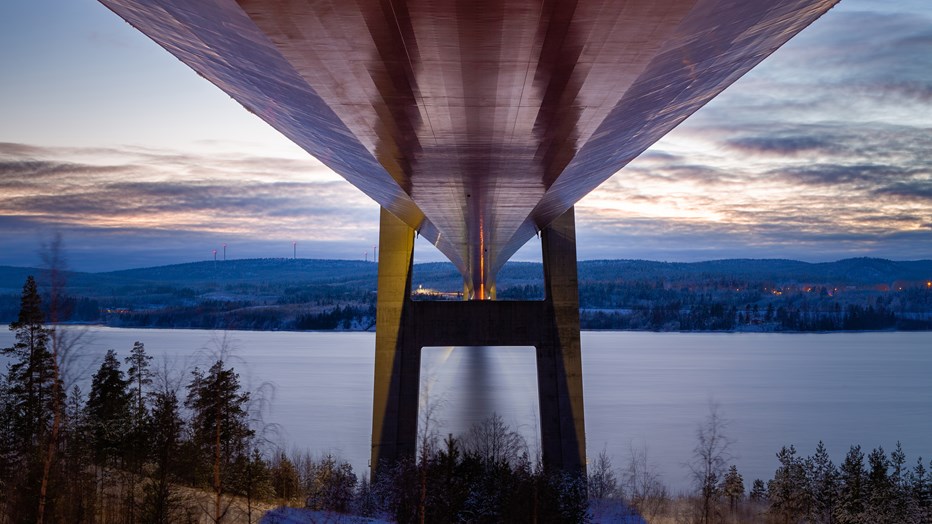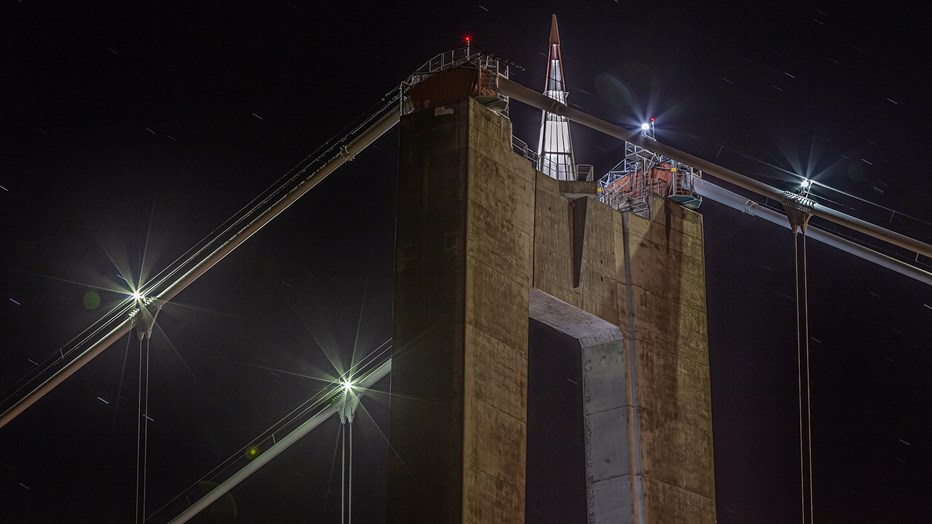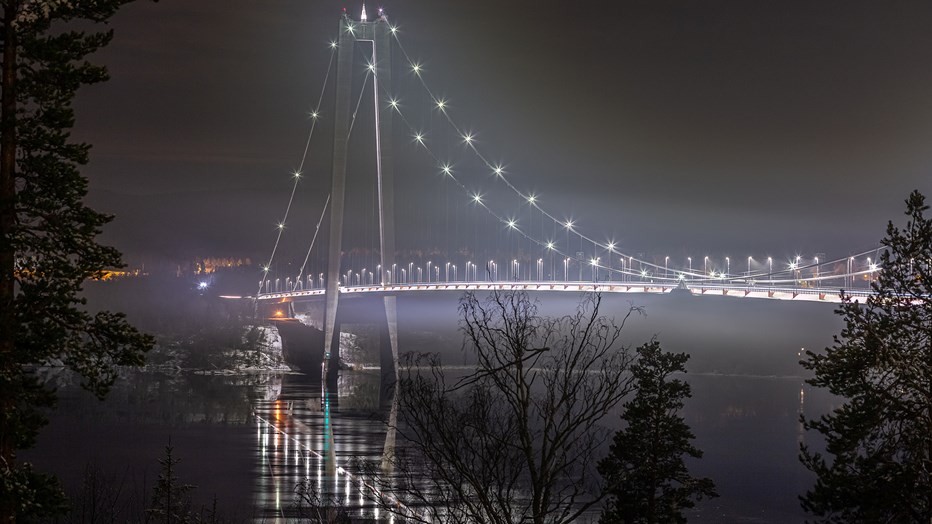Designed for rough weather
The High Coast Bridge (Högakustenbron) was inaugurated in 1997, and is one of the longest suspension bridges in the world with its 1,800 meters. The bridge links European route E4 between the municipalities of Kramfors and Härnösand municipalities across the Ångerman River (Ångermanälven). The bridge was Sweden's tallest construction until the Öresund Bridge was built.
Pylons 180 meters high
The reason why a suspension bridge was chosen is that the water depth in the Ångerman River is about 90 meters. Skanska was commissioned by the Swedish Transport Administration to build parts of the structure and to cast the 180 meter high pylons. Skanska was also part of the consortium that installed the suspension system and the superstructure for the bridge.
Work began in 1993. The pylons were founded on solid rock, and have a hollow cross section of reinforced concrete with the legs inclined inwards.
Exposed and harsh environment
Work on the High Coast Bridge was performed in an exposed environment with harsh winds, extensive snowfall and ice. To speed up the work, the road decks were mounted in 40 meter long and 21 meter wide modules.
The 48 modules were manufactured in Finland and lifted in place by a floating crane. The modules closest to land were mounted in place via a special platform.
The weather affects the construction
The harsh weather in northern Sweden had to be taken into consideration when the bridge was constructed. Only a few inches of snow blowing against the railing could in theory affect the stability of the whole bridge. To ensure a robust construction, engineers tested a wind tunnel on a nearby bridge.
The pylons are designed to withstand a collision from a 50,000-ton boat sailing into the pylon at 16 knots speed.
The High Coast Bridge in numbers
- 40,000 cubic meters of concrete were used in pylons and land mounts.
- 14,000 tonnes of steel were used in the bridge deck.
- 8,500 tonnes of steel wire are used in the cables.
- 4,000 tonnes of reinforcement were installed.
- The total length of the bridge is 1,800 meters.
- The free width of the roadway is 17.8 meters and is intended for a highway that is 13 meters wide.
- The sail-free height is 40 meters.
- The pylons are crowned by 12 meter high glass pyramids.






